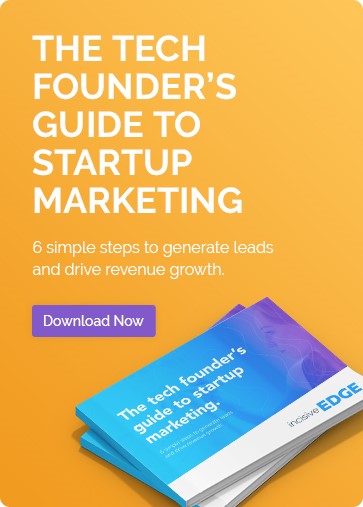Though perhaps not immediately obvious, but big data is your secret weapon that can zoom your content strategy to dizzying new heights.
It’s true. In fact, without turning to big data analytics to inform your content strategy, it’s questionable whether or not you even have a content strategy at all.
Many content marketers out there are guilty of simply creating content for content's sake. They know that they need to be producing content for their business's website, so they sit down twice or three times a week, blast out a blog or two, and hope for the best. However, a more effective approach would be to develop a content marketing strategy that carefully considers the incorporation of structured data and unstructured data. Structured data, such as organized databases and tables, ensures that information is presented in a format that is easily understandable by search engines and other systems. On the other hand, unstructured data encompasses more free-form content like articles, social media posts, and videos, adding a layer of creativity and flexibility to the content mix.
This strategy should also take into account the growing influence of social media platforms. Integrating content seamlessly into various social media channels can significantly enhance reach and engagement. Additionally, a comprehensive content marketing strategy should incorporate digital content strategies to navigate the evolving landscape of online content consumption. This involves staying updated on trends, utilizing multimedia formats, and optimizing content for different platforms to maximize visibility and impact. By aligning content creation with a well-thought-out strategy that integrates structured data, unstructured data, social media platforms, and digital content strategies, marketers can ensure that their content is purposeful, targeted, and ultimately drives meaningful engagement and positive outcomes for their business.
There’s no real content strategy here. No real analysis of what’s working and what’s not. Just content for content’s sake.
Research reveals that many professional content marketers really are taking this approach. The Content Marketing Institute’s ‘Content Marketing in the UK 2017’ report asked UK content marketers a very simple yet very probing question: In your organisation, is it clear what an effective or successful content marketing program looks like?
The response? More than half (54%) either said ‘no’ or were ‘unsure’.

(Image source: contentmarketinginstitute.com)
Taking a somewhat gung-ho approach to content isn’t necessarily a bad thing – after all, it’s only through experimentation that you actually do discover what sticks.
However, the fact that some 54% of content marketers in the UK either don’t know or aren’t sure what effective content marketing looks like is nonetheless worrying.
Attempting to drive meaningful business results is always going to be a challenge when you're unclear as to exactly what it is that you're trying to achieve. And this is where big data analytics will come flying into the rescue. Having a strong digital content strategy is crucial for leveraging the power of big data analytics effectively. A strong digital content strategy ensures that your content aligns with business objectives, facilitating the extraction of valuable insights through data management. With proper data management, businesses can organize and optimize the use of information, making it more accessible for analysis.
Moreover, the integration of big data technologies is essential for unlocking the full potential of big data analytics. These big data technologies enable businesses to handle and process vast amounts of data efficiently. By incorporating big data analysis into your strategy, you can derive actionable insights that drive informed decision-making and contribute to achieving meaningful business results.
Check out the following blogs for more information on Digital content strategy
- How to Win Online with a Digital Strategy Agency
- Go to Market Strategy vs Marketing Strategy: The Difference
- 5 Top Ways to Develop Effective Marketing Strategies
- How to Innovate SaaS Marketing for 2023 and Beyond
What is Big Data?
It was only a few years ago that many people in the marketing sphere were shrugging off “big data” as just another buzzword.
But the term – and indeed the concept – has stuck. Big data is here and it's a big deal. Create content, optimise it for search engines through search engine optimization, and measuring its performance using key performance indicators has had a significant impact on various industries, including security, finance, healthcare, telecoms, and marketing.
But what is big data?
Well, as complicated as the big data sciences are, big data is actually a very simple concept. It’s just lots and lots and lots (and lots and lots and lots) of data. Loads of it.
As content marketers, we’re constantly creating new data – blogs, tweets, videos, webinars, infographics, Facebook posts, Instagrams, etc., etc., etc. – and publishing them online. And of course, we’re not the only ones. Everyday users from all around the world are doing the same – and they’re leaving comments and sending messages and emails and goodness knows what else as well.
For the past five years, Domo has released an infographic illustrating the world’s data generation and online behaviour.
Around the world – according to the latest release – this is what happens every minute:
- 2 million text messages are sent
- 456,000 tweets are posted
- 46,740 Instagram photos are published
- 6 million Google searches take place
- 103,447,520 spam emails are sent
This is big data.

(Image source: domo.com)
Where Does Big Data Fit into Your Content Strategy?
Data, indeed, gushes from every corner of the web at an incredible rate.
But what does this all mean for your content strategy? Indeed, how can you use big data to inform what you do as a content marketer?
While the impressive scale of big data is undeniable, its standalone utility is limited. What's crucial is the ability to analyze, derive insights, and translate those insights into actionable strategies—an endeavor more achievable than it may seem. A fundamental aspect of achieving this lies in having a successful digital content strategy and a well-documented content strategy that consistently produces high-quality content. These components are pivotal in extracting maximum value from big data, facilitating effective analysis, insightful conclusions, and actionable outcomes.
To confront the inherent complexities encapsulated in big data challenges, it's imperative to recognize the significance of raw data—often unprocessed and unstructured. Incorporating real-time sensor data, which captures information dynamically from diverse sources, further enriches the depth and relevance of the data pool. By seamlessly integrating raw data and sensor data into the content strategy, businesses can adeptly navigate big data challenges, ensuring that the analytics process is well-informed and poised to yield meaningful results.
Here are a few ways that you can start utilising big data to improve your content strategy going forward.
Finding and Engaging Your Target Audience
Who’s interested in reading your content?
Big data has the answer.
Using tools such as Google Alerts, Google Analytics, as well as things like Mention – a tool which scours the web (and social media in particular) to find out who’s talking about your brand – you can very quickly begin to build up a picture of who your target audience is, and where its members can be found online.
Big data tools can be leveraged to analyze the behavior of your target audience, identify their interests and discussions, and subsequently develop a meaningful content strategy. By incorporating techniques from the Content Marketing Institute and content strategies, you can align your digital marketing efforts with a documented strategy. This approach enables you to create and deliver highly effective content.
And remember – we’re not just talking about blog posts here. Big data analytics tools can be used to measure the success of your (and your competitors’) social media posts, as well. And the same goes for anything else your analytics tells you your target audience likes to engage with – infographics, videos, podcasts, whatever it happens to be.
Driving Conversions
Finding and engaging your target audience is just one piece of the puzzle – the ultimate purpose of your content strategy will of course be to drive conversions.
To do so, you will of course have mapped out your buyer’s journey and be utilising different content assets at every stage.
Again, using tools such as Google Analytics, HubSpot and your content management system’s own analytics function will enable you to track how long your prospects stay at any given stage of the journey, as well as what content they’re downloading, engaging with, ignoring and abandoning.
By crunching the numbers, you will be able to very quickly determine your best (and worst) performing content, and thereby identify what types of content you should be creating more (and less) of.
Over to You
Finding your target audience and driving conversions are perhaps the two most important aspects of any content strategy – but in terms of how you can use big data to improve these metrics, what we’ve touched on here is just the very tip of what is quite frankly a gargantuan iceberg.
In any content strategy, targeting audiences and driving conversions are key. Using big data to enhance these metrics is just the start. Strategically integrating video content can powerfully reach and engage target audiences, driving conversions and increasing brand awareness.
Big data analytics can be used for keyword research, for competitor analysis, for remarketing campaigns, customer retention strategies, SEO, constructing inbound marketing personas, matching sales reps with prospects and customers, and much more besides. Ultimately, the role big data plays in your content strategy is to help you match the right message with right audience – and to do it time and time again with all your output across all your channels.
If you need help making the most out of big data to improve your content strategy, get in touch with the inbound marketing experts here at Incisive Edge today.








